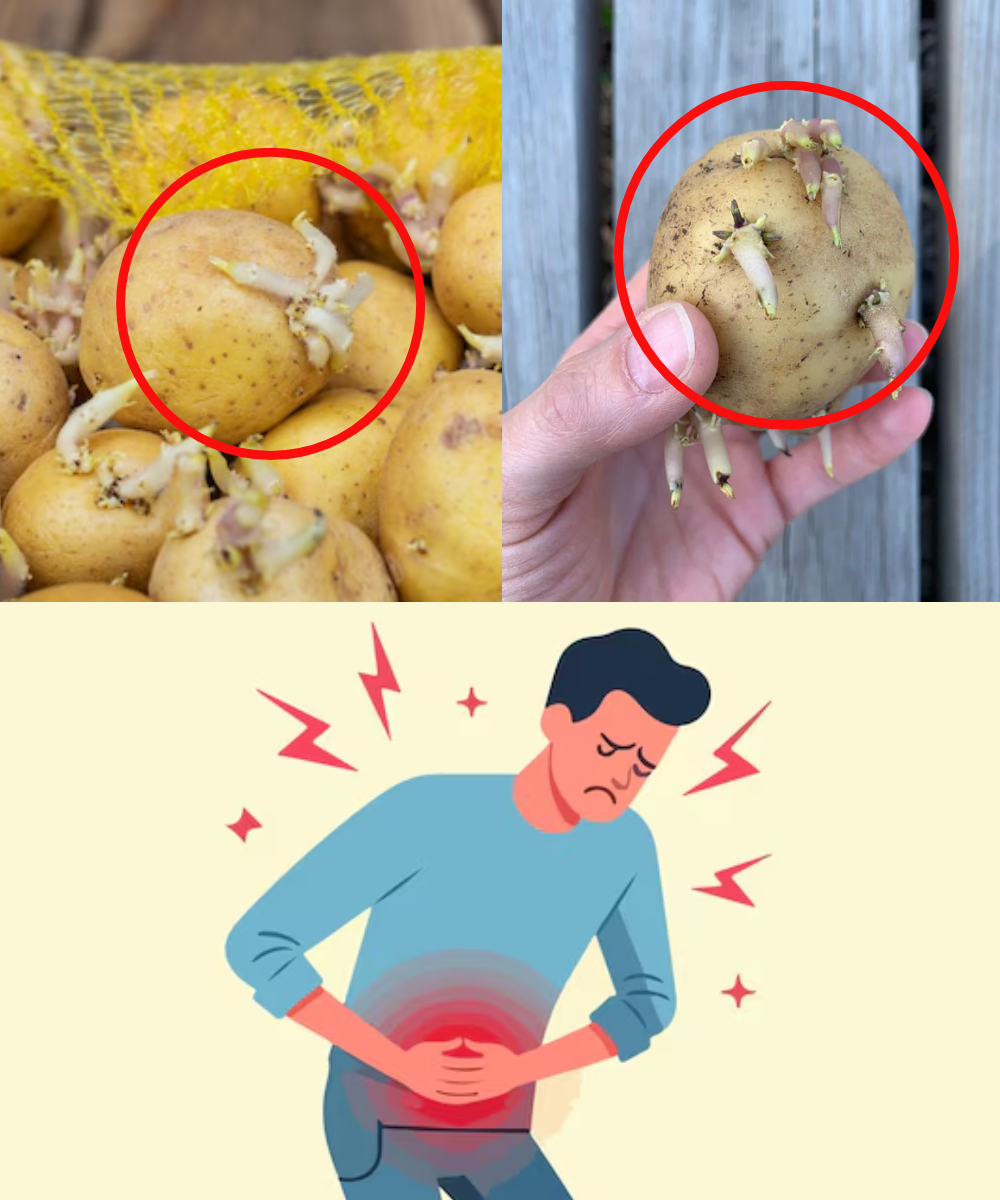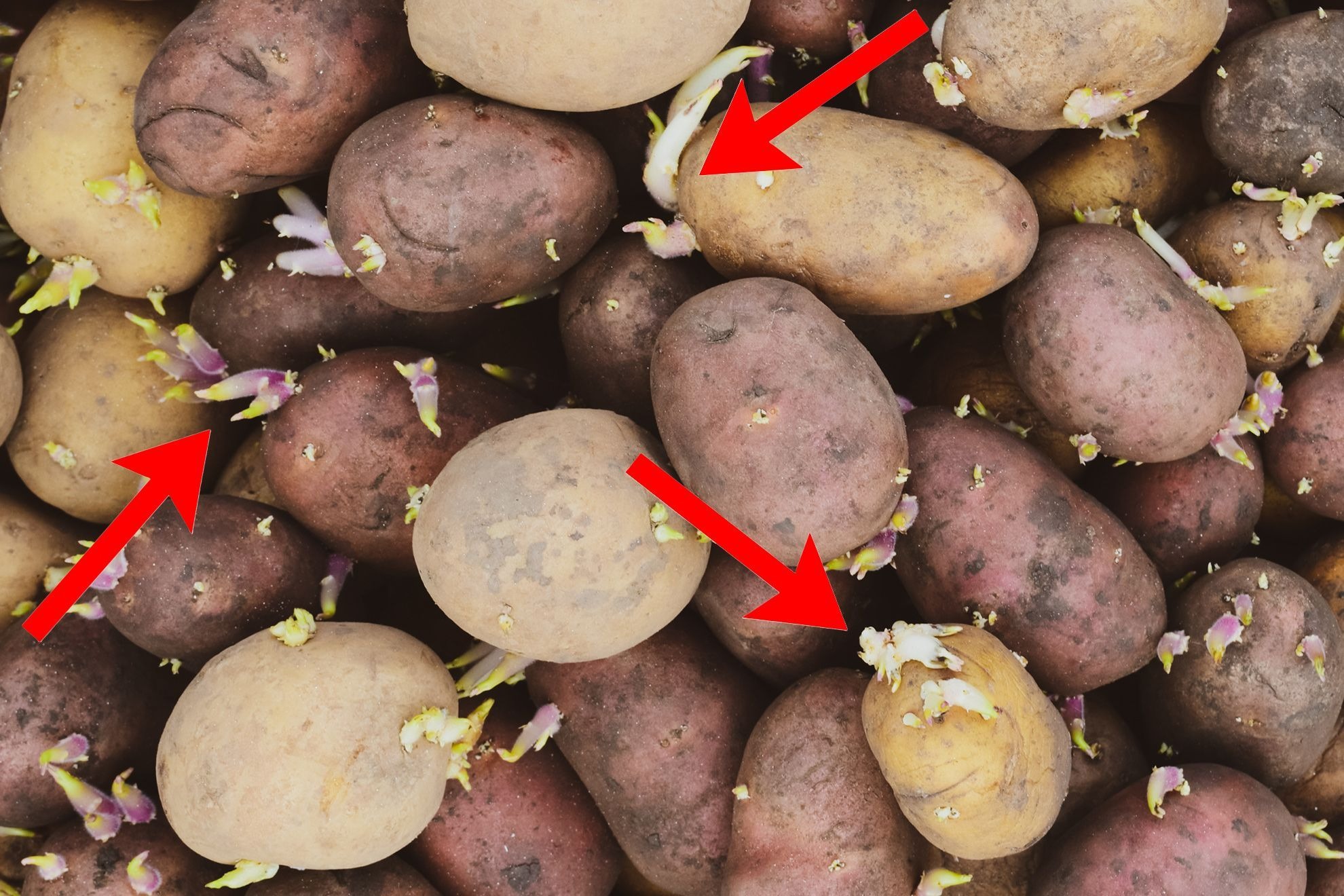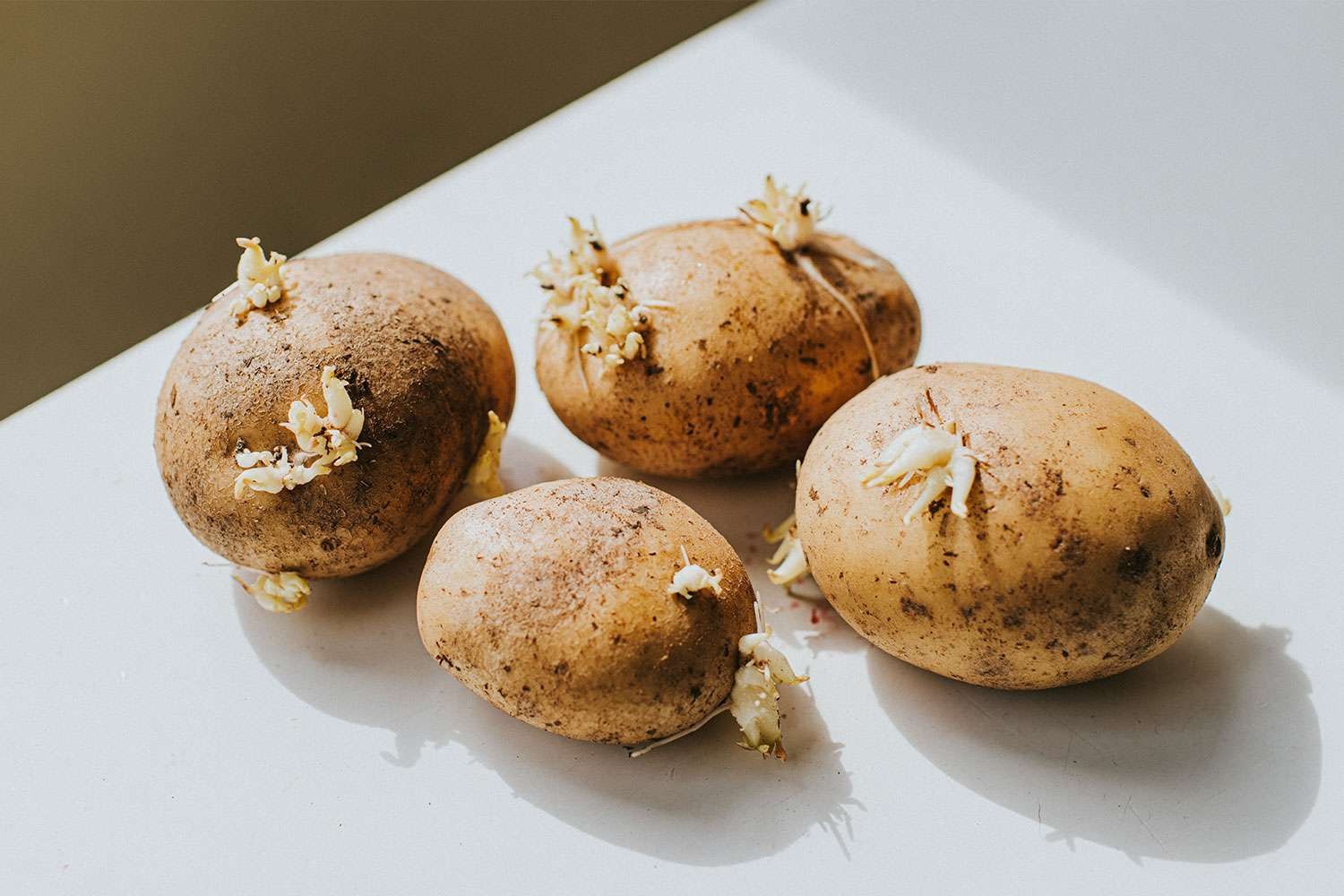
Potatoes are one of the most consumed foods worldwide. Fried, mashed, or roasted, they show up on almost every table.
But behind their familiar comfort lies a hidden danger: when potatoes begin to sprout, they can become toxic. Many people remain unaware of how serious this risk can be.
Why Sprouted Potatoes Can Be Dangerous
As soon as a potato starts to sprout, it produces solanine, a natural chemical compound. Solanine is part of the plant’s defense mechanism against pests and disease, but for humans, consuming it in high amounts can be harmful.
This toxin is concentrated mainly in the green parts of the potato, in the sprouts, and just beneath the skin. Unfortunately, simply peeling the potato isn’t always enough to eliminate it. Worse still, solanine is heat-resistant, meaning even high-temperature cooking cannot destroy it.
Eating potatoes with solanine can trigger digestive distress such as vomiting, diarrhea, and abdominal cramps. In more severe cases, it may cause neurological issues like headaches, dizziness, or confusion.
Children and the elderly are particularly vulnerable, as their systems react more quickly and intensely. In fact, just a few bites of a contaminated potato can be enough to cause symptoms.

How to Spot the Warning Signs
The best protection is vigilance. Before cooking, always check your potatoes carefully. Warning signs include:
Green patches on the skin
Visible sprouts or “eyes” forming
A bitter taste or unusual odor
Even if the potato still feels firm, these indicators suggest it could be unsafe to eat. Never assume firmness equals freshness.
How to Reduce the Risk
Since solanine develops when potatoes are exposed to light or stored improperly, proper handling makes a big difference:
Store in a cool, dark, and dry place – Avoid direct sunlight, which accelerates sprouting. A paper or burlap bag is better than plastic, which traps moisture.
Don’t refrigerate – Cold temperatures convert potato starch into sugar, altering taste and texture without preventing sprouting.
Use potatoes quickly – Buy smaller quantities to avoid long storage periods. The longer they sit, the greater the chance of sprouting.
Cut generously if needed – If only small sprouts are visible, you can cut away the affected areas deeply. But if there are many sprouts or widespread green patches, it’s safer to discard the potato entirely.

Final Thoughts
Potatoes may seem harmless, but when they sprout, they carry a real risk. Solanine poisoning is rare but dangerous, especially for children and the elderly. By learning how to spot early warning signs and practicing safe storage, you can continue enjoying this beloved food without putting your health in jeopardy.